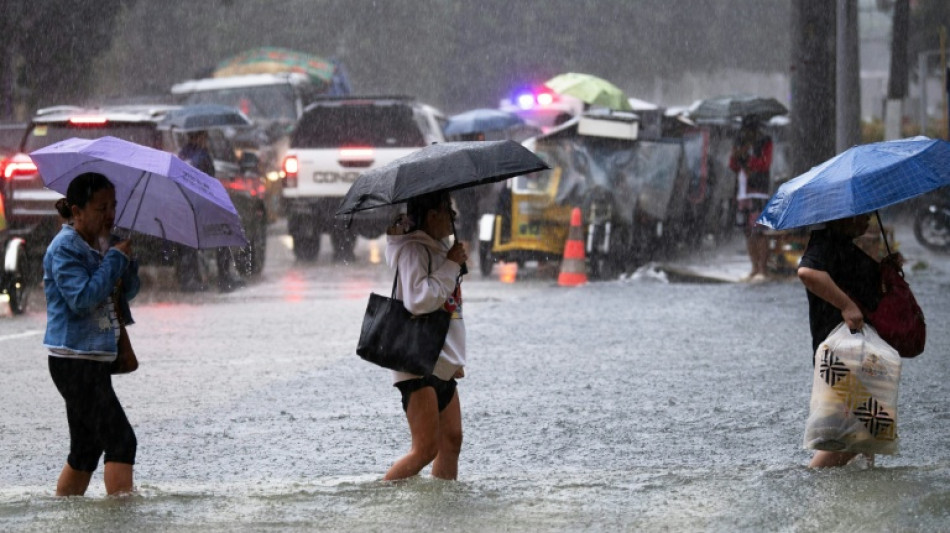

Philippines flooding displaces thousands, two missing
Floodwaters driven by torrential rains ground life in the Philippine capital to a halt on Tuesday with tens of thousands evacuated from their homes and at least two people believed missing.
Schools and government offices in Manila and the surrounding provinces were closed after a night of rain that saw the region's Marikina River burst its banks.
More than 23,000 people living along the river were evacuated overnight, sheltering in schools, village halls and covered courtyards.
Another 25,000 more were evacuated in the metropolitan area's Quezon and Caloocan cities.
"Usually these people are from low-lying areas like beside creeks (feeding into the river)," according to Wilmer Tan of the Marikina rescue office, who said the river had reached 18 metres (59 feet) in height.
An elderly woman and her driver were swept down a swollen creek as they attempted to cross a bridge in Caloocan, said John Paul Nietes, an emergency operations centre assistant supervisor.
"Their car was recovered last night. The rescue operation is continuing, but as of today, they haven't found either of them," he said.
"The car window was broken, so the hope is that they were able to escape."
Floodwaters were receding on Tuesday morning, though thousands of people remained unable to return to their homes.
Ongoing monsoon rains have killed at least three people and left another seven missing in the central and southern Philippines since Tropical Storm Wipha skirted the country on Friday, according to the National Disaster Risk Reduction and Management Council.
At least 20 storms or typhoons strike or come near the Philippines each year, with the country's poorest regions typically the hardest hit.
Deadly and destructive storms are becoming more powerful as the world gets warmer because of climate change.
"This is hard, because if the rain will continue... the river will swell," Manila street sweeper Avelina Lumangtad, 61, told AFP as she stood next to a flooded thoroughfare.
"The floods are dangerous."
J.Hoffmann--FFMTZ




